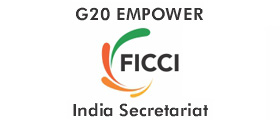-
Education is the critical link between women's empowerment and their equal workforce participation. Specifically, education in the areas of science, technology, engineering, and mathematics (STEM) has a significant impact on women’s earning capacities.
Currently, 49% of member countries have achieved gender parity in primary education. The gap widens at the secondary level. 42% of member countries have achieved gender parity in lower secondary education and 24% in upper secondary education. SDG Goal 4 - to ensure inclusive and quality education for all and promote lifelong learning - is therefore an overarching goal for all G20 member countries.
The G20 EMPOWER 2023 will pursue women’s empowerment as an overarching priority through the G20 work streams. To that end, one of the identified focus areas is: Education, the Key to Women's Empowerment and Equal Workforce Participation.
Education is critical for:- Economic empowerment
- Improving employment outcomes
- Enabling women to take on leadership positions
There are 78.2 million out-of-school children, among whom 54% are girls . The GEM Report (2021-22) emphasises the importance of involving private players in the education sector, without which the education of 350 million more children would be negatively impacted.
Women make up only 36.2% of the enrolment in science, technology, engineering, and math (STEM). About 11% of the women workers, as compared to 9% of male workers, are at a higher risk of losing their jobs to automation, due to lack of STEM skills, capabilities, access, and awareness. Therefore, promoting women’s education and vocational training in non-traditional sectors is fundamental to the global progress on gender equality.
Adolescent girls and women have high expectations for transitioning to work but often find themselves in a limbo due to lack of skills, social norms and inadequate support to make that transition. There is a need to recognise all educational institutions, students and teachers as part of a single system. This will create pathways for empowerment and will promote systematic school-to-work transition.
Investing in education and skill development not only empowers women, but also their families and communities. Education equity is a unique and essential investment which promotes women's leadership and economic empowerment. Ensuring that education benefits women and men equally provides multiple development dividends.
The way forward under India’s Presidency is to collaborate with the G20 members and guest countries in the field of education for women and girls.

